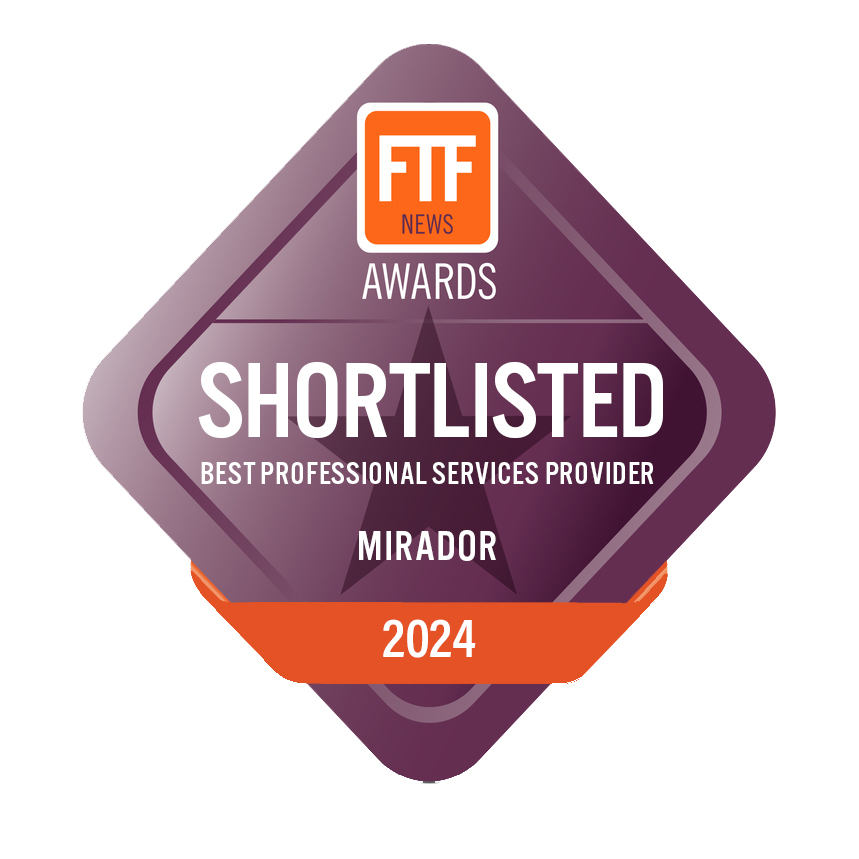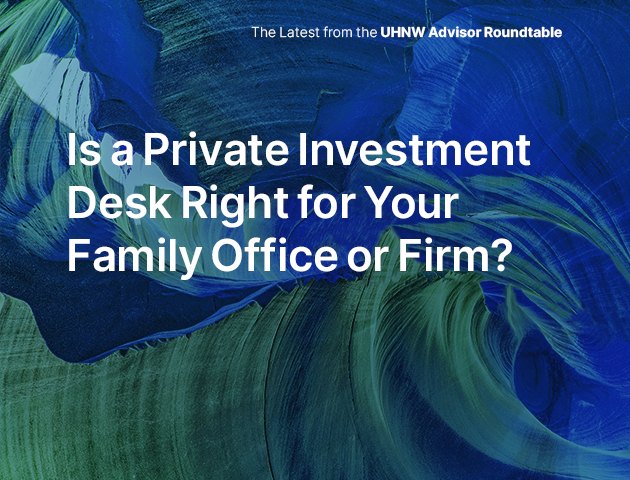Thought Leadership / In The News / Keys To Hiring The Right Consultant For Your Firm
Mirador’s CEO Gives Practical Advice, Questions To Ask And Red Flags To Avoid For Wealth Management Firms Hiring Consultants
In large markets with systematized processes and simple contractual terms, customer reviews will make or break a business. You can check out a local hairdresser through Yelp ratings, learn about your host on Airbnb and decide who will give you a ride on Uber. But in some markets, such as wealth management, ratings are underdeveloped or lacking, and contractual terms can be very complex.
In our industry, you need to conduct due diligence on the potential consultant and be wary of common pitfalls before signing the dotted line. Regardless of the consultant’s field of expertise, some well-placed questions will increase your odds of receiving quality work.
To learn how to select the best consultant for a particular firm’s needs and ensure favorable terms, we spoke with Joseph Larizza, CEO and President of wealthtech firm Mirador, which provides managed services for financial reporting, technology solutions and products for the ultra-high and high net worth wealth management space.
We asked Larizza how to get the most out of a consultancy engagement, what to check for in due diligence and how to spot a consultant who’s trying to take shortcuts.
– WSR:
How do you ensure that the consultant you hire will meet your needs in the current engagement, instead of providing limited results and angling for further engagement to complete your needs?
– Larizza:
It’s best to find a firm that actually operates the solution they are recommending rather than one that only makes recommendations, then lets someone else implement or operate the proposed solution. If you can’t find a consultant that also operates the solution, add performance rewards and penalties based upon proposed outcomes of the engagement. For instance, if a technology is supposed to reduce workload or headcount, how do you ensure that happens, and what happens if it fails to meet the goals?
It’s not uncommon for consultants to leverage a “teaser” engagement to lead to or justify larger projects – particularly smaller firms in which the principals do the majority of the work. Many, in fact, consider this paid business development, especially if there is a short discovery period, limited sessions to gather information and a short timeframe for them to formulate their recommendations.
Instead, you should press them for the upfront work to be done free or the payment for it repurposed as a discount, should they win the larger follow-up engagement.
Also, question other ways the consultant can get “paid.” For example, are they making referrals that lead to referral fees or revenue sharing with the firms they recommend? Is there a quid pro quo among the firms?
In addition, find someone to whom your business challenge is not unique to them, that is, it’s not their first time to address your business scenario. Otherwise, seek discounts or concessions since your project will benefit them by adding to their qualifications.
– WSR:
What checks do you need to do to ensure the consultant is capable of doing the required work well?
– Larizza:
Always conduct reference checks, or better, seek out a past or current client they’ve served and find a contact for reference without going through the consultant. Don’t just ask about the outcome – ask about the process, too. Was it painful? Were deliverables sent on time?
Find out their largest and smallest clients. How do you fit relative to their mean client in terms of size, services and challenges? Ask about and inquire with clients that didn’t have the best experience.
Also, understand who owns the work products and what their rights to reuse and publish them are.
If it’s a technology project, have someone with similar or better technology acumen interview them. Don’t let them dazzle you with technology buzzwords or vendor names – ensure their experience is deep and thorough to your needs.
– WSR:
What shortcuts might a consultant be tempted to take, and how can you prevent the consultant you hire from taking those shortcuts?
– Larizza:
As a client, you are unique. While all consultants reuse intellectual property, rubrics and work products, everything done for you should be customized to your business, situations and challenges.
Ensure the qualifications the consultant presents to you are those of people who are actually working on your engagement.
Make sure you have plenty of support from senior people in the firm – ideally unbillable support. Top people typically have lower billing and utilization targets since more of their time should be spent on business development. Keep their billable hours and fees out of your project.
Janeesa Hollingshead, Contributing Editor at Wealth Solutions Report, can be reached at editor@wealthsolutionsreport.com.

 Posted by Mirador
Posted by Mirador





